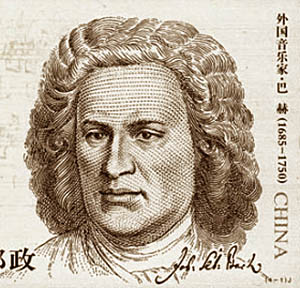
 Bach Now with Emmanuel Music: This Sunday, during the regular 10am service, Emmanuel Music kicks off its 50th-annual Bach Cantata Series at Boston’s Emmanuel Church (HERE ) with Bach’s Cantata No. 72, “Alles nur nach Gottes Willen” and Henry Purcell’s heart-wrenching Hear My Prayer. The complete schedule for all 36 performances, with program notes and Pamela Dellal’s precise, thoughtful cantata translations has just been posted HERE. Three season highlights draw from outside of Bach’s sacred music: Elena Ruehr’s new Requiem on November 7th (commissioned by Emmanuel in 2020), Principal Guest Conductor John Harbison’s 1994 Chorale Cantata on March 6th, and James Primosch’s 2014 commission for Philadelphia’s excellent professional choir The Crossing (directed by Donald Nally). Primosch follows a tradition made popular by Britten is this new Mass for the Day of St. Thomas Didymus, weaving together Latin mass texts and contemporary poems by Denise Levertov (see notes HERE and complete texts HERE).
Bach Now with Emmanuel Music: This Sunday, during the regular 10am service, Emmanuel Music kicks off its 50th-annual Bach Cantata Series at Boston’s Emmanuel Church (HERE ) with Bach’s Cantata No. 72, “Alles nur nach Gottes Willen” and Henry Purcell’s heart-wrenching Hear My Prayer. The complete schedule for all 36 performances, with program notes and Pamela Dellal’s precise, thoughtful cantata translations has just been posted HERE. Three season highlights draw from outside of Bach’s sacred music: Elena Ruehr’s new Requiem on November 7th (commissioned by Emmanuel in 2020), Principal Guest Conductor John Harbison’s 1994 Chorale Cantata on March 6th, and James Primosch’s 2014 commission for Philadelphia’s excellent professional choir The Crossing (directed by Donald Nally). Primosch follows a tradition made popular by Britten is this new Mass for the Day of St. Thomas Didymus, weaving together Latin mass texts and contemporary poems by Denise Levertov (see notes HERE and complete texts HERE).
Ryan Turner, who sang under Emmanuel’s founding director Craig Smith from 1997-2007, continues his successful tenure as the organization’s second Music Director (history HERE). The Sunday services will continue to be live-streamed under the guidance of Emmanuel Music’s brand new executive director Jaclyn Dentino (bio HERE).
Bach Then
Emmanuel Music’s Founding Director Craig Smith called Bach’s Cantata No. 72 “one of the great bravura works from Bach’s time in Weimar. It opens with a brilliant and fiery chorus of great richness for both the singers and instrumentalists.” Alto Recitalist and local Bach scholar Pamela Dellal continues, “ ‘Alles nur nach Gottes Willen’ stems not from a chorale text, but from an original libretto by Salomo Franck. Franck was a very gifted librettist who also served as the head of the Mint in Weimar; many of Bach’s finest cantatas from Weimar are composed to Franck texts. A striking feature of the libretto is the ‘litany’ – a short, repeated phrase that gains conviction and intensity through repetition. The litany is coupled with contrasting ideas – joy & sorrow, clouds and sun, good and bad – stressing the sense that the faithful believer should never stray from his one task of trusting wholly in God.” Read her complete notes on the cantata HERE.
Bach probably composed the earliest version of this cantata in 1715 in Weimar and revised it for the larger choir at Leipzig’s St. Thomas Church in 1724. It opens with a raging tempest filled with fugal flashes of lighting trying to overwhelm a tolling bell represented by the lower instruments; the storm abates, revealing a lyrical, contrapuntal depiction of floating clouds. The one-of-a-kind multi-dimensional arioso for Alto that follows is unique among Bach’s solo writing: recitatives evolve, harmonies shift, and the repetitious chiming of the anaphoric litany text emphasizes the resoluteness of the faithful. After a gorgeous contrapuntal duet for Soprano and oboe, Bach concludes with one of his favorite chorales (used in three other cantatas) in both A minor and C major, uniting the two central keys of the cantata in a final affirmation of consolation. This is a must-hear! All services at Emmanuel Church now allow in-person attendance (HERE for precautions), and all will continue to be live-steamed: HERE.
Bach Later with the Cantata Singers
The same Cantata No. 72 “Alles nur nach Gottes Willen” will conclude the final (of four) concerts in Cantata Singers’ 2021-2022 “Emergent”! season at First Church Cambridge: BWV 72 will cap a program curated and directed by Northeastern University’s new Director of Choral Activities Katherine Chan (bio HERE). Featuring live interpretations by Boston’s Urbanity Dance (celebrating its tenth anniversary, webpage HERE), this March 27th performance will contrast Bach’s BWV 72 with motets of Schütz and Schein and five ensemble premieres by Jonathan Dove, Jocelyn Hagen, Christopher Harris, James MacMillan, and Israeli composer Yehuda Yannay (details HERE).
To find a worthy successor to Director David Hoose, Cantata Singers will feature a full program curated and conducted by each of its four Music Director Finalists this season. Alejandro Hernandez-Valdez (bio HERE) leads the October 22nd program, presenting all four of Bach’s cantatas for Michealmas (BWV 19, 50, 130, and 149) alongside three ensemble premieres: two motets from Alec Roth’s beautiful Shared Ground and Knut Nystedt’s aleatoric, “timeless” arrangement of Bach’s Komm, süßer Tod (program details HERE).
The Hartt School’s new Director of Choral Activities Anthony Trecek-King (bio HERE) leads Cantata Singers’ December 12th concert (program details HERE) headlined by the fifth part of Bach’s Christmas Oratorio and seasonal motets by Schütz and Poulenc. Five ensemble premieres will display diverse contemporary approaches to sacred composition, highlighted by an early Ave Maria by R. Nathaniel Dett, a prize-winning graduate of Oberlin and Harvard, and Margaret Bonds’s impressive jazz- and blues-infused cantata based on Langston Hughes’s “Ballad of the Brown King.”
In March, Williams College Director of Choral Activities Noah Horn (bio HERE) will direct a concert entitled “Into Your Hands,” featuring a politically-charged new work by Pulitzer Prize-winner Caroline Shaw (website HERE), Handel’s explosive, early Dixit Dominus, spirituals by Dett and Brandon Waddles, and Bach’s fantastic double chorus motet Komm, Jesu, komm (program HERE).


